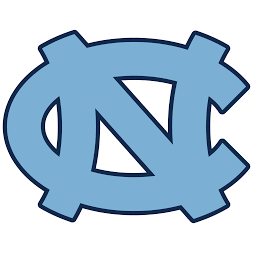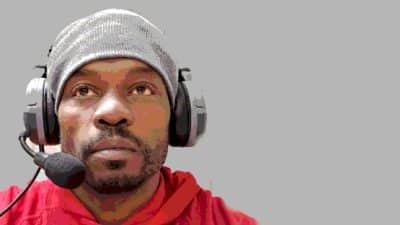
THE MODERATOR: We have North Carolina and the Tar Heels with us.
Heading to the stage will be Charlie Heck to get us started. Questions, please.
Q. Notice that four of the six linemen are back. What is the learning curve like with the new coaching staff, particularly how about the blocking responsibilities for the air raid offense?
CHARLIE HECK: It’s a great question.
So O-line play in general, it pretty much stays the same throughout. You have your basic schemes, basic techniques. It all comes down to just playing hard and playing aggressive.
With the air raid offense, we’re spreading the ball out, moving quickly. So as an offensive lineman, you have to know your plays inside and out and be ready to move fast.
Q. What can you say about your first impressions of Mack Brown, just what he’s done to kind of maybe exhilarate the team already?
CHARLIE HECK: My first impressions of Coach Brown, when I found out he was coming in, I instantly thought Hall of Fame, legendary coach. He’s exceeded all my expectations action, and everybody’s on the team.
He brought an excitement to the team that I hadn’t seen before, not just only on the team but in the community. People are talking about Carolina football. That’s been really special to be a part of right now.
Q. When you got the news about Coach Brown, you said you were instantly excited. How much truly of his background did you know? Did you have to do any research? Has your opinion changed at all?
CHARLIE HECK: So obviously I’d heard of him, national championships at Texas. I was super excited. And just what I’ve heard from previous UNC players that have been through the program who have stopped by. Something that’s interesting is Coach Brown brought in a lot of former players. They’ve been saying the same things that I’ve been witnessing firsthand, how Coach Brown will go to bat for you, he’s always there for the players.
I’m already starting to see the improvements. We have the brand-new indoor facility, best in the country. The brand-new turf football field. It’s beautiful. I’m excited to play on it.
Q. Most offensive linemen like to run block first. You had a fair amount of success in the running game last year. When you hear a name bike air raid, you’re thinking throw, throw. How big a component of this offense is the run game? What do you look for with the talented running backs you have returning this year?
CHARLIE HECK: So with the air raid offense, for that to be successful, you need to be able to run the ball. We’ve got three running backs that are special. Every single one of them can make a game-changing play at any moment. We need to give them the ball because they’ll make it happen.
It’s exciting to be an offensive lineman blocking for them.
Q. Finishing games in the fourth quarter, that seemed to be a bit of a mark against the program over the last two years. How do you finish more ballgames this year?
CHARLIE HECK: How do we finish more ballgames? Something that Coach Brown has really emphasized right now is attention to detail. That’s extremely important. That can cost between going 2-9 and almost winning every game, it’s just attention to detail.
Something huge is eliminating penalties, turnovers. That’s been huge throughout the spring and summer. Even throughout our workouts, everything is related to finishing in the fourth quarter and having attention to detail.
THE MODERATOR: Thank you. We’ll switch places with Myles Dorn.
Questions, please.
Q. As your father played for two years for Coach Brown, I’m sure you compared a few notes. What did your father lead you to expect from Coach Brown? Secondly, had there been some things he’s done that have surprised you that maybe didn’t happen, wasn’t in your father’s scouting report?
MYLES DORN: The first thing my dad said is he’s a great coach. That’s held to be true. The one thing I didn’t know, is that he was honest. He’s the most honest coach. That’s one thing you don’t see in most coaches nowadays, is just honesty. He’ll tell you what you need to hear, not necessarily what you want to hear. That’s what you want as a player.
Q. What can you say about your first impressions coming in, just your overall thoughts about coach, if you felt the energy right away?
MYLES DORN: I felt the energy after the first meeting. He told us that he was going to take care of us. The day after he asked for what we could change. A month later, we saw it.
He’s a man of his word. That’s something that you can’t compare to anybody else.
Q. Got a lot of players back on defense. What is the learning curve like with a new coaching staff? Stopping the run has been an issue at Carolina for a lot of years. Do you feel like you will be able to do a better job stopping the run this year?
MYLES DORN: Definitely. I think we’ll be a better overall defense. We’re paying attention to details. We’re playing in a system to where we can just go out and play. Jay Bateman has put together a great program for us. We’re learning it, communicating, getting everything ironed out.
Q. You mentioned the changes that Coach Brown installed. What were some of those broad changes you saw early on?
MYLES DORN: The first thing that we saw was in the players lounge. He cleaned out the players lounge, got everything that we needed. Second thing was he mentioned that we were going to get a new locker room; that’s almost finished. New facilities all throughout. He’s made an environment to where we want to be there and we want to work.
Q. The development of Chazz Surratt going from a quarterback to linebacker, what have you seen out of his development so far?
MYLES DORN: It’s probably one of the smoothest transitions you’ll ever see. He’s a natural athlete. He’s smart. When you can understand what the offense is doing on defense, you’ll put yourself in positions to make plays that most players couldn’t.
Just his ability to recognize and play fast is great.
Q. The talk of Coach Brown coming in obviously brought a lot of excitement. His staff coming in, working with DBs, Dre Bly, a guy that played for Coach, what kind of an impact have the alumni you’ve talked to and even worked with had on you and the rest of your teammates to reinvigorate that program?
MYLES DORN: It’s one thing when you can learn from somebody who’s lived it because you don’t question anything they say. He’s a player that’s played for Coach Brown and went to be a Hall of Fame player, played in the league for a long time.
Learning from him is an experience you can’t get anywhere else. It’s just something that our players cherish, that we really hold close to us.
Q. To have a coach with the name Mack Brown, how do you think that impacts recruiting? The potential for this program is only getting better with that name leading the program.
MYLES DORN: Yeah, Mack Brown is a legendary name. It brings in some of the top recruits. Every weekend we have somebody in. We have a five-star here, a four-star here, they’re committing left and right. We knew that when he came, that was something that was going to change. It’s holding true.
THE MODERATOR: Nice suit by the way.
MYLES DORN: Appreciate it.
THE MODERATOR: Thank you.
We’ll bring up Coach Brown for questions.
Q. I know you’re opening the season in Charlotte, important for North Carolina recruiting forever. Talk about your connection to Charlotte, how important that is for you guys moving forward.
MACK BROWN: One of the biggest things I’ve noticed in difference from the time I was here before is the growth in Charlotte. There’s so many more players here than there were before. It’s a very, very fertile recruiting ground that we’ve lost a lot of players the last few years. It’s important for us to play in Charlotte, so we can get these young guys to come to our game, because South Carolina can get them to come and we can get prospects to come to this game now. They’ve changed that rule for a neutral site. So it’s not only the home team can bring kids; both can.
We’re really excited about opening here.
Q. What can you say, obviously you stepped away from coaching a few years ago, why come back, why now, and why return to North Carolina to lead again?
MACK BROWN: Thank you. When we got out of coaching five years ago, I talked to Dick Vermeil. He said, Don’t ever say you won’t get back in coaching. You don’t know what opportunities can come up, how you’ll feel at that time. I kept saying we would look at things.
Every year, as much as I love TV, we would interview at some job. None of them seemed to fit, whether they didn’t want us, we didn’t want to live there, whatever. I actually asked Sally a year ago, a prominent job I was interested in called and asked if I would talk to them. I asked my wife Sally, Would you go here?
She said, No, I’m not going to go there. I don’t want to live there, you don’t fit there. That’s stupid. We are not doing that. I’ll let you coach in Hawaii, I’ll let you coach in The Bahamas.
I said, They don’t even have football.
She said, Well, we’ll start a team called the Bahamas Iguanas. Or I’ll let you coach in Chapel Hill.
That’s it. We really liked Larry Fedora. He was a great friend. Never thought we’d coach again. Bubba called at the end of the year. It had been a year after the Hall of Fame where we talked to a lot of different players that played for us. They all talked about how much we meant in their lives. They’re talking to their children about things we talked to them about.
Walking out of the building at North Carolina in August of last year, Sally said, There’s two things I learned tonight. Number one, you better not tell a kid something as a coach unless you mean it because he’s going to remember it. Number two, there’s a void in your life and you love mentoring young people, and you can’t do that right now with TV.
I understand that better now. It was just a blessing for us. I hated to see Larry go. When Bubba called and asked us to come, I thought it was the only place I had permission to coach, number one. It’s a place that we loved. We had some unfinished business. We’re excited to go back. We’ve had a wonderful eight months.
Q. Coming out of spring ball, where are you in evaluating your quarterback situation?
MACK BROWN: Starting spring ball, we felt like we had three talented quarterbacks. Really none of them were playing well. It was a new offense. It’s an offense that the quarterback has to make a lot of decisions at the line of scrimmage. They were all pressing. We were throwing too many interceptions.
We thought for a team that had too many turnovers last year, it was an awful message. What we told the quarterback is, Let’s stop worrying about who is going to play, let’s learn the offense. Do the same thing this summer. I’ve been asking Charlie and Myles some today about what they’ve seen over the summer, what’s happening out there.
We told the guys we’ll make the decision in the fall about who will start, who will play. It will be the guy that moves the team the best and gets them in the end zone. That’s just it.
The biggest decision we have to make in the next month and a half is who starts at quarterback against South Carolina. All three are talented enough, all three are good enough, all three are young. You have a redshirted freshmen. It’s a blessing in disguise. You always worry about the transfer portal when you start talking about quarterbacks because if they’re not playing, they usually want to transfer.
We’ve got to figure all that out.
Q. You’ve spoken a lot about wanting to incorporate the air raid offense now with North Carolina. What are some specific things that North Carolina fans are going to see for the first time on the field come fall?
MACK BROWN: The thing I think is overused is the term “air raid.” What I want is a team that can throw the ball as well as anyone in the country. The air raid offenses have been doing that. I watched it for 16 years at Texas with Mike Leach and with Kliff Kingsbury.
The thing that was missing with them, in my estimation, was the power running game. What happened with Lincoln Riley at Oklahoma, what happened with Phil Longo at Ole Miss is they’re taking the air raid concepts, spreading people out, but they’re running the football. They have two backs in a lot of cases or a tight end. It’s still the old power running game. I love the combination of both.
So when I was at Carolina, I know we had the most thousand-yard rushers in the country. I don’t know how that’s calculated over the last few years. I haven’t looked back. But we will still be a prominent power running team that will also throw the ball. In the air raid offense, they throw it deep.
While I’ve been impressed with what Phil Longo has brought, it’s a very simple concept, as Charlie was talking about, even with the offensive line. But it puts a lot of pressure on the defense. You’re able to throw the ball deep. You can get it to a Michael Carter in space. At the same time you can run the ball off tackle.
Q. Why the air raid offense? I’m sure it helps sell tickets. Secondly, Larry Fedora ran a pretty wide-open offense. What are the differences?
MACK BROWN: Why air raid offense? I think, again, it’s the best offense that’s out there right now, with the combination of what — we probably should change the name because when you say air raid, everybody thinks of the Mike Leach throw it every time. That’s not what we’re doing. It’s really a different concept than what it sounds like it is.
But I think it’s the best way. To me, you need to be able to run the ball to win all the games. The best teams in the country can run the ball. That hasn’t changed for years. It’s not going to change. It also helps your defense because if you’re going to throw it three straight times, you get three incompletions, you’re off the field quickly, your defense is on the field too long.
I felt like one of the advantages I had over a lot of coaches is I had five years to sit, like you guys, and watch. I call games every Friday night. I saw young coaches that I liked. I saw concepts. I saw different practices. All those things have helped me be a better coach.
I feel like that’s what it will bring to us.
Q. You just mentioned coming from the media and TV world. We have this big news about the ACC Network. Speak a little bit to what you’ve experienced with that, what it’s going to mean for the conference. There’s still a lingering question out there about a couple big networks that haven’t signed on yet.
MACK BROWN: Yes, it’s a great question.
I was involved in the starting of the Longhorn Network. I have way too much experience in starting networks. There was all the pressure on Texas at that time. At least there’s a group of us now that have that.
John Swofford has done a tremendous job with this league. The league is so much stronger than it was when I was here before. Won a national championship in about every area, when you start looking at the success. I really feel like the fans are the ones that put the pressure on the networks because they’re going to want to see the games. That’s how it worked at Texas.
It wasn’t an easy process. But over time it worked. ESPN is the best at what they do, in my opinion. I just watched them and ABC sell for the last five years. They’re the ones selling the network.
It’s going to work. It will start out at a lot nor prominent place than most of the networks around the country started. Over two or three years, you’ll see it be as powerful as any.
Q. You mentioned unfinished business coming back to Chapel Hill. Elaborate on what you were talking about.
MACK BROWN: You guys don’t look any older. I look a lot older. I’m seeing all you people out here when I was here before. You must have been really young. I was a puppy (laughter).
Yes, when we left, we were fourth in the country I think. We had just won 10, then won 11. We were recruiting as well as anybody in the country. We were getting most of the guys we wanted out of the state of North Carolina, some out of Virginia, some out of South Carolina and Georgia. We were really on a roll.
Because of a lot of different circumstances, Sally and I thought it was best for us to leave at that time. But we did feel bad leaving a great team. I think there were 20, 22 guys off that defense drafted in ’96 and ’97.
We want to come back and get it back like it was. But even better, we’d love nothing more than to win a national championship here.
Q. What did you learn at Texas that you want to apply now or do differently this time around?
MACK BROWN: What did I learn at Texas that I want to do differently? I think we’re all creatures of habit. If we’re not careful, we get in a little box sometimes. We don’t get outside the box.
Leaving Texas got me outside the box. We did pretty much the same stuff at Texas that we did here the first time. I think over the last five years, I’ve learned that there’s other ways to do things as well. Just like y’all’s jobs, most coaches think you sit around all day trying to figure out how you can make the coach look bad, find something negative about the program. What I found out is you’re trying to make a living, trying to find something that somebody will read or watch. It’s been really healthy for me.
I’ve told the coaches in our meetings that, embrace the media, help them when you can with their jobs. If you mess something up, they’re going to say you messed it up. That’s part of their job. ESPN, ABC were on me all the time about, you got to say it, it’s there, it’s real. I know he’s your buddy, but that’s part of the deal.
I think the thing that I learned is I will never let a staff have too much control again, which is a strong statement. But I’m the one responsible for everything that happens in football at the University of North Carolina. So I need to make those final decisions. I’ll get their input. Same thing with recruiting. I’m the one that knows who fits the place better than anyone else, so I need to make those final decisions.
The other thing I’ll do is you get into coaching because you love the game and you love the players. If you’re not careful, you win so many games, it becomes about the wins more than anything else.
I asked Coach Royal, who won three national championships at Texas, maybe 10 years in, I said, Coach, why did you quit at 52 years old?
He said, Because the wins became a relief and the losses became disaster, devastation. There was no joy.
I looked up and found myself at that place, at Texas. If we didn’t win all the games it was my fault. Your worth becomes when you do in wins. You don’t realize that while you’re there.
I’m going to have fun. I’m still not going to enjoy losing. We’re going to learn from losing when we lose because we’ll lose some. Just about everybody does. Then we move forward with it. I’m spending a lot more time with players. Sally and I eat lunch or dinner each day with the guys we can so we can find out about their lives. Also learn you make your rules. There’s consequences for your rules. Used to kill me when a young guy would get in trouble. Very honestly now, rules are rules. If you mess up, you got consequences like everybody else. You knew the rules before you messed it up.
Take your consequences and we move on.
I’m at a better place right now in my life and with sports than I’ve ever been.
Q. You mentioned earlier about the significance of the city of Charlotte, recruiting here. You have a couple of freshmen wide receivers from this area. Do you have any guys who are younger that you’re really looking to get a lot of playing time at that position?
MACK BROWN: One of the things with the offense we brought in, sometimes you’re in four wide receivers. You really need about 14 because at two deep now means eight. There’s a lot of people that we need. We were short on numbers at wide receiver, and we still are. We may sign four or maybe even five this year as you look at it.
I’m excited about getting back and watching practice. We lost so many guys in the spring that weren’t out there. Then you add the new guys. We’re going to have to develop some depth. Our senior class is good. We have some voids in sophomores and juniors, because the young ones coming in we think have a chance to play. We’ve never seen them on the field together because we can’t see them in the summer. We haven’t been able to watch those wide receivers.
One of the things in this offense, playing wide receiver is very simple. So a young guy can play mentally. He has to make sure he plays physically.
Q. You talked about unfinished business, you’ve readdressed that. Talked about new facilities, all the things that are new. You also talked about Sally’s permission. What is it about UNC and Chapel Hill that is the constant for you that drew you back other than just the job?
MACK BROWN: It’s a great question.
We decided, number one, we were not going to move anywhere we didn’t want to live. We loved Chapel Hill before. We raised our children here in Chapel Hill. Some of our kids went to the University of North Carolina. We loved the place. We had 10 years. We had a lot of success here.
The ex-players would constantly be in our lives. That was important. I think as much as anything is I love fixing things. Right now we’re struggling some. We need to get more people in the seats. We’ve got to improve our game-day experience.
The guys to me are talented, but we haven’t finished games like we should because of the little things Charlie and Myles talked about. All of that stuff, all of those things, are things that excite me.
Living there, being in the state where you know a whole lot about this state, because I coached at Appalachia and UNC, the fact that the conference right now is so good, we have the best team in the country in Clemson. Everybody knows that’s the mark now, that’s the standard that’s set.
All of that just fit us perfectly. And Sally didn’t want to leave the first time, so… To say the truth.
Q. Obviously you’ve been around football since we saw you last. How has recruiting changed during that period with all the transfer portals, grad transfers? Were you quick in getting up to speed?
MACK BROWN: Yes, I was involved with recruiting with the ESPN. I never lost touch with it.
When I was the president of the American Football Coaches Association, we wanted an early signing date. What we proposed was that the legacy young man, that’s the guy that only visits one school, he’s not going anywhere else, he could sign early, and early enrollees could sign early. That was all we wanted for an early signing day.
The NCAA changed it and said, We can’t have some sign and not give everybody permission to sign. Now there’s only one signing I date. December has become the signing date. That means you have official visits in the spring. You have young people on your campus about every day. There’s no days off.
I think we’ve really got to look at that. I’d rather have a signing date in June. The end of June all these guys are committed. Let them sign. They can go play with their schools, forget it. You don’t have to recruit them all fall. It helps high school football.
But that’s the biggest thing I think. Now we’re looking at sophomores. Very honestly, you’re going to make mistakes if you’re starting to offer a lot of sophomores. You have a couple of semesters academically. You don’t know about their growth. You’re not even sure what kind of team player they are.
I really worry that we’re getting out there too far. I was one of the ones that started offering juniors early. Now people are offering freshmen. I mean, I think we need to slow down and take a deep breath because when you bring in the wrong guys, when you’re evaluating so early, you’re going to bring in some of the wrong guys, you’re going to have more guys in the transfer portal.
I don’t like the fact we’ve made it so easy to transfer. Coaches change schools. Players should be able to change schools. A lot of the young guys that went in the portal didn’t get a better school. I think that’s really going to slow down next year when they look at the options.
It always looks greener.
The other thing is that those that transfer usually don’t do well academically. I think like 30 something percent may graduate. We really have to look at the transfers, the transfer portal, the appeal process, and academically how we help a young person when they transfer.
THE MODERATOR: North Carolina, thank you. Good luck this year.
MACK BROWN: Thank you very much.










